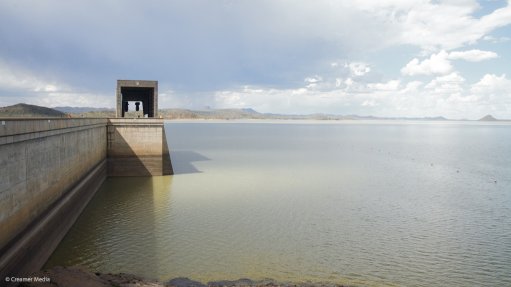
Photo by: Duane Daws
Water and Sanitation Minister Nomvula Mokonyane has welcomed 35 Cuban engineers seconded to South Africa for a two-year term within the framework of a controversial bilateral cooperation agreement signed in September 2013.
The engineers would undergo a two-week induction course and thereafter be placed in various roles at the head office of the Department of Water and Sanitation (DWS) and at provincial water boards.
The department added that the agreement would see Cuban engineers, geohydrologists, hydrologists and water supply specialists working with South African water authorities to augment the skills capacity in the sector and tackle the country’s water infrastructure challenges.
The seconded engineers would provide geohydrology and engineering services; assist with the exploitation of water resources; maintain water-supply infrastructure; assist with capacity building through the training and support of local staff; and manage water supply.
“In addition, the plan is that, by the time the Cubans leave, they would have developed enough capacity to close the gap that exists currently,” the DWS said in a statement.
The department confirmed late last month that South Africa and Cuba would go ahead with the deal, despite earlier concerns from industry bodies such as the South African Institution of Civil Engineering (Saice).
Detractors of the agreement questioned the decision to import a water-related skills base, when South Africa was well known to host world-class civil engineering professionals in the water sector.
“[Had] the DWS launched a recruitment drive to find skilled professionals to deal with South Africa’s water problems in South Africa, with the same remuneration and incentives, Saice is confident that many a civil engineering practitioner, who knows South Africa’s water challenges inside out, would have been available to assist in sorting these out.
“The money spent on establishing and accommodating these engineers in South Africa could possibly be better spent relooking current salaries and working environments in these areas to the benefit of civil engineering professionals, a number of whom are unemployed, thereby creating sustainable jobs within South Africa,” the organisation asserted.
Saice CEO Manglin Pillay added that government needed to attract South African engineers back to South Africa and the government sector, where they were most needed.
“If there is a shortage thereafter, then the whole world can join us,” he remarked.
According to the DWS, South Africa was currently losing 36.8% of its water through poor infrastructure management, largely as a result of an “extreme shortage” of skilled water professionals.
This cost the country over R11-billion a year.
It added that there was also a challenge with the manner in which municipalities handled water issues and that skilled professionals were needed for the maintenance of facilities and infrastructure such as water treatment plants, dams and reservoirs.